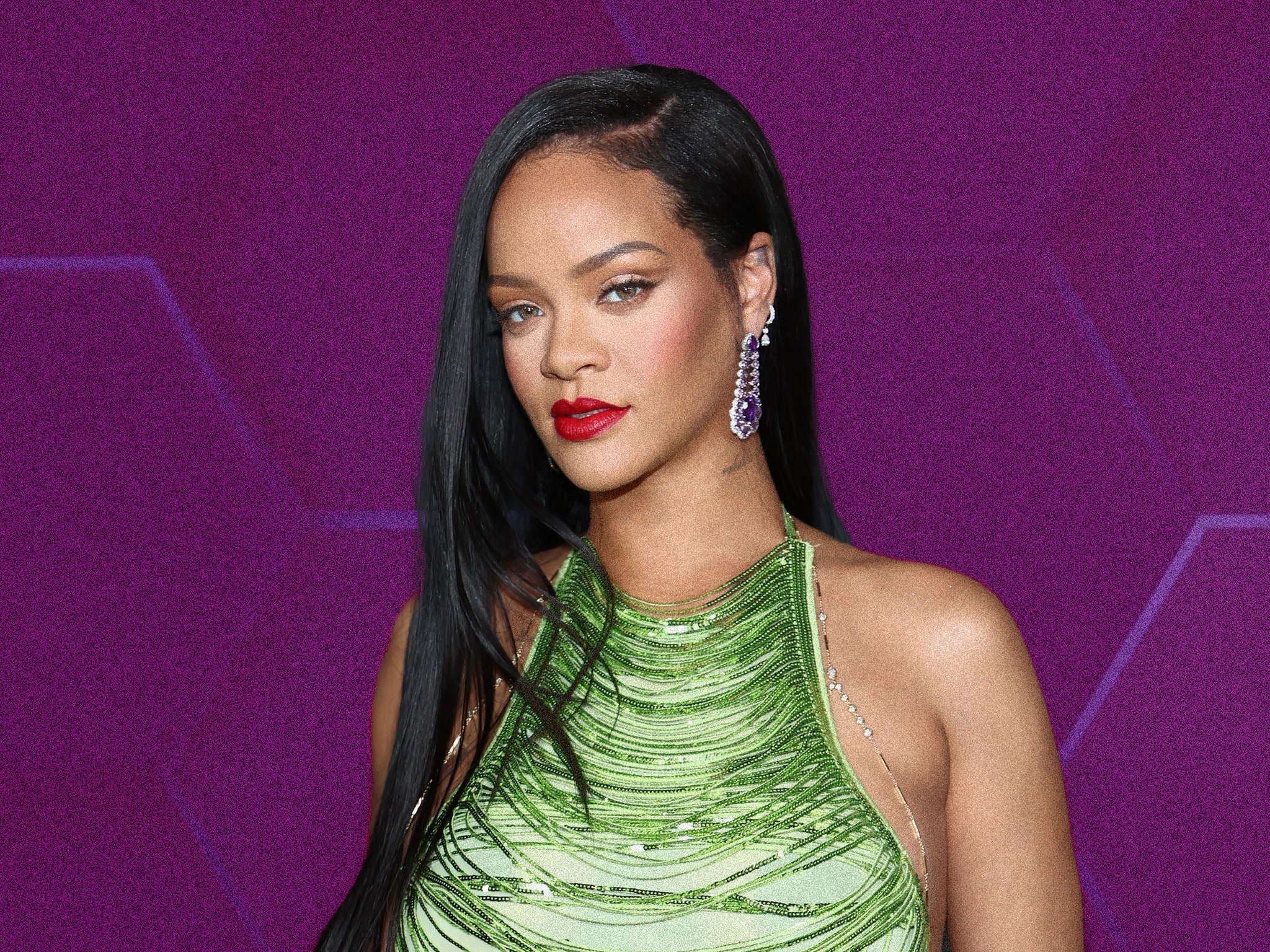Rihanna’s post-baby body shouldn’t be up for debate – whether you’re praising her or not
Paparazzi pictures of a postpartum Rihanna have drawn praise from all quarters, writes Nicole Vassell. But regardless of our tone, we need to stop commenting on the bodies of others


You can always count on Rihanna to get the internet talking. Last week, the singer and beauty mogul was spotted outside a Manhattan restaurant wearing a loose T-shirt, mini skirt and statement thigh-high boots. Sightings of the star have become relatively rare in recent years, and especially since she delivered her and A$AP Rocky’s first child in May – but fans have poured over the release of each new paparazzi set for an opportunity to see her, post-birth. Some of the online chatter about the pictures has focused on her supersized footwear, but much of it has been about her body. Unfortunately.
A few dark corners of social media have spread mean-spirited responses, with some making pointed remarks about Rihanna seemingly retaining the weight that she gained while carrying her son. Thankfully, far more people have hit out against such comments rather than endorsing them. “Let Rihanna enjoy her baby weight and stop body shaming her because she is not rushing to lose weight right away,” read one tweet. Others have praised her for going against the expectations for women to “snap back” to their pre-pregnancy size immediately after giving birth; one fan wrote: “I just wanna personally thank Rihanna for humanising what having a baby does to the body and not forcing her body to have a snap-back.”
In many ways, statements like these are encouraging, and representative of a move towards a culture where it’s completely OK for people’s weight and appearances to fluctuate. Tabloids are, after all, notorious for commenting on increases and decreases in body size, even without pregnancy being involved. Rihanna is still in the vulnerable postpartum period, so it’s also great to see people standing up for her appearance. But by commending the star for defying expectations, it reinforces the idea that there are expectations about her body in the first place – and that’s a big problem in itself.
Loudly praising people for weighing more than others, or even their past selves, doesn’t always come across as the compliment it is intended to be. Rihanna hasn’t explicitly positioned herself as someone who wants to send out a message about body positivity. She was just living her life when folks on the internet decided to deem her an inspiration for simply existing with a curvier figure. In a time where people are clinging to the idea that each of our bodies – how they look and what they do – should be solely our business, it’s important not to project statements onto people who didn’t ask for it. There’s no telling how Rihanna truly feels about anything unless she tells us first.
Even though the past decade has been momentous in changing the idea that beauty is solely equivalent to being slim and white, gaining weight or generally being a bigger size can still be a sensitive topic to many. Last year, Jonah Hill explicitly asked people to stop making any comments about his physique after he was praised for appearing topless while on a beach. “I know you mean well but I kindly ask that you not comment on my body,” the actor wrote in a social media post. “Good or bad, I want to politely let you know it’s not helpful and doesn’t feel good.” Similarly, Nicola Coughlan had to ask people not to share their opinions about her body with her, telling fans: “I am just one real-life human being and it’s really hard to take the weight of thousands of opinions on how you look being sent directly to you every day.”
It may be refreshing to the people commenting to see people with bigger bodies thriving. However, it doesn’t take into account the fact that the person receiving their “congratulations” may not want to be considered a hero for looking the way they do. Alternatively, Lizzo has made her curves a significant part of her brand; her dance crew is named “Big Grrrls” and she has launched a shapewear line, Yitty, designed to cater to all body sizes. She’s positioned herself as someone who explicitly wants her body to stand as a form of inspiration for others. But that’s not the case for everyone – and people should accept that specific notes about someone’s body are not always welcome. Even the uplifting ones.
Overall, it is a positive thing to see that there’s support for people to do whatever they want with their weight. The fact that there’s a rush to highlight the different ways that people can be attractive is heartening, too. But the next time you see someone – be they a multi-platinum-selling artist or an acquaintance you haven’t seen in a while – going about life in a bigger body, there’s no need to make it a topic of conversation. By bringing it up at all, you may be doing more harm than good.
Join our commenting forum
Join thought-provoking conversations, follow other Independent readers and see their replies
Comments


Bookmark popover
Removed from bookmarks